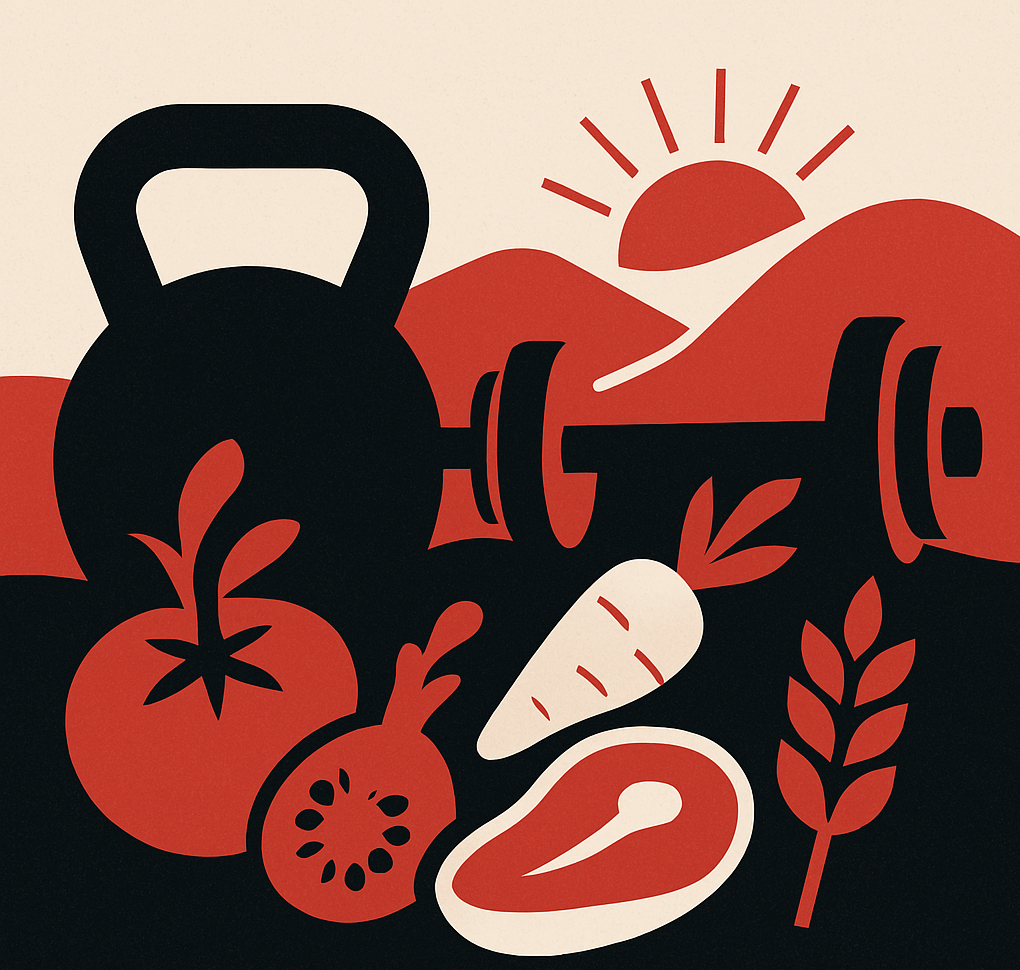
14 Apr The Truth About Diet & Nutrition (Why Most People Overcomplicate It)
Why Most People Struggle With Dieting
Almost every time I talk to someone—whether it’s my students, friends, or even random people—the topic of diet and nutrition comes up. And most of the time, people are either confused or completely clueless about how to eat properly.
I get questions like:
🔹 What should I eat to stay lean?
🔹 How much protein do I need?
🔹 How many meals should I have per day?
🔹 What foods do you avoid?
If you’ve ever wondered the same things, this post is for you.
First, a disclaimer: I’m not a doctor, dietitian, or nutritionist. I’m simply sharing what has worked for me after years of experimenting, training, and researching. If you have any medical conditions, always check with your doctor before making drastic dietary changes.
That said, let’s get into it.
The Biggest Problem With Diets
Most people know that diet plays a huge role in achieving a lean, strong physique—arguably more than training.
Yet, people jump from one trend to another:
❌ First, it was keto.
❌ Then, it was paleo.
❌ Then, it was high protein, high fat, low-carb.
❌ Now, people are experimenting with Ozempic and weight-loss drugs.
Every few years, there’s a new trend, a new “magic solution.” But here’s the truth:
📌 Fad diets are temporary.
📌 Extreme restriction is unsustainable.
📌 If you can’t stick to it for life, it won’t work long-term.
Most people who follow these diets eventually fall off, regain the weight (often even more), and go back to square one.
Diets fail because they’re not built for real life.
Should You Count Calories? Track Macros? Follow a Strict Meal Plan?
Some people meticulously track everything they eat:
✔️ Weighing food
✔️ Measuring macros
✔️ Meal prepping every bite they consume
I’ve seen bodybuilders carry pre-packed meals everywhere—eating chicken and rice out of a container multiple times a day.
And if that works for them, great. But for most people? That’s not sustainable.
Personally, I don’t count calories, macros, or weigh my food. I’ve tried different diets over the years just to see how my body reacts. Some were impossible to follow. Others made me feel great.
The only one I stuck with for a while? Intermittent Fasting (IF).
Why? Because it fit my lifestyle.
I’ve never been a fan of breakfast, so skipping it felt natural. I also found that eating too close to my Jiu-Jitsu sessions (at 6–7 PM) made me feel sluggish.
With IF, I naturally ate less often, but better meals. And it worked.
This isn’t to say IF is for everyone. But the best “diet” is one that feels natural, fits your routine, and is sustainable for life.
What Actually Works? The Key to Long-Term Health
Instead of obsessing over diets, focus on a healthy lifestyle.
📌 Avoid processed foods. Stick to whole foods—things that rot quickly and don’t come in a package.
📌 Stay away from sugar. This includes sugary drinks, sweets, and highly processed snacks.
📌 Eat what’s natural for your region. If you live by the sea, fish should be a staple. If you live in an agricultural area, local fruits and vegetables should dominate your diet.
📌 Don’t follow extreme restrictions. Humans have thrived on a mix of animal and plant foods for thousands of years. Cutting out entire food groups isn’t necessary for most people.
📌 Listen to your body. Some people digest meat better. Others feel great with more plants. Your diet should be built around how YOU feel and perform best.
One study found that people in “Blue Zones” (areas with the longest-living populations) ate based on what was naturally available to them—and their diets varied greatly from place to place. (Source)
Protein: How Much Do You REALLY Need?
The fitness industry has obsessed over protein for years. And yes, protein is important for muscle growth.
But how much do you actually need?
📌 The scientific recommendation is about 1.2–1.6 grams per kg of body weight per day for active individuals. (Source)
For a 75kg person, that’s around 90–120g of protein daily.
Now, do you need to count every gram? No. If you eat a balanced diet with meat, fish, eggs, dairy, beans, or other protein sources, you’ll likely get enough.
What’s more important than protein? Overall nutrition.
People get obsessed with macros but ignore vitamins, minerals, fiber, and gut health.
What About the Scale? Should You Track Your Weight?
📌 If you’re overweight and trying to lose fat, the scale can be useful to track progress.
📌 If you’re already lean and strong, weight doesn’t matter as much.
You can be 75kg and weak or 81kg and strong, muscular, and healthy.
Instead of obsessing over the scale, ask yourself:
✔️ Do I feel good?
✔️ Am I getting stronger?
✔️ Do I have energy throughout the day?
Your goal should be strength, performance, and longevity—not just chasing a number.
Final Takeaways: What You Should Actually Do
1️⃣ Eat whole, natural foods. Avoid processed junk.
2️⃣ Stop obsessing over macros and calories. Focus on quality nutrition.
3️⃣ Eat a variety of foods. Balance meat, fish, fruits, vegetables, and grains.
4️⃣ Prioritize longevity, not just aesthetics. Your body should function well, not just look good.
5️⃣ Listen to your body. There’s no perfect diet—only what works for YOU.
At the end of the day, nutrition isn’t complicated.
Eat real food. Avoid processed junk. Stay active. Everything else takes care of itself.
Resources:
Harvard Health: Healthy Eating Plate
Protein intake research (NCBI)
Read More:

No Comments